Google is, and has always been, on a mission to provide the most relevant, helpful information to its searchers that it can. Whilst it used to ‘just’ be a search engine, Google is now far more advanced and incorporates all of the following, plus many more:
- The Knowledge Graph and Carousel
- “Position 0” (Knowledge Box)
- Google Now Voice commands
- Google Maps
- Google photos
- Expanded Ad placements
- YouTube for video searches
A more recent development is the use of artificial intelligence in a number of Google’s products, which search being prominent among these (Hummingbird and Rankbrain are prime examples of this)
All of these additions to the core of Google along with the constant algorithmic tweaks (approximately 3 a day) have made Google’s collection of algorithms some of the most advanced in the world for their respective tasks. However, there are times when they have some teething problems!
Sites ranking when they shouldn’t be doing so
Despite Google issuing constant warnings about not using paid links or private blog networks, or violating their linking guidelines with paid links that pass Pagerank, they bizarrely remain unable to identify sites that any digital marketer with some experience could immediately recognise as being paid links. The below images are from the same site (there are dozens of posts like the below!) where exact match anchortext in low quality blogposts is linking to commercial websites (which are often homepages, as well) which almost always tend to be paid in nature.


Despite clearly being created for the purposes of selling advertisements, this doesn’t seem to have done anything to dent their organic rankings:
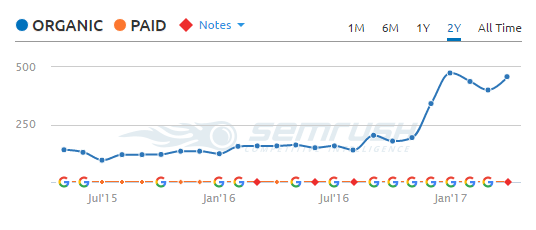
There are countless other examples of this, in extremely competitive niches, from the infamous 21.co.uk saga, covered by Blueclaw at the time (although the site has now slipped down the rankings somewhat since it’s heyday) and the Black Friday deals affiliate site that rocketed to #1 (outranking Amazon, Tesco, Argos, Currys, and many others in the process) for ‘black Friday deals’ despite having no apparent content or links related reason to do so (the homepage is simply a long list of affiliate links to black Friday deals – it is of course possible that’s why Google was so fond of them, for ‘answering the user’s query so well!) it’s certainly the most successful ‘newcomer’ affiliate site we’ve ever seen. Below are some snapshots of the site from an organic marketplace perspective:
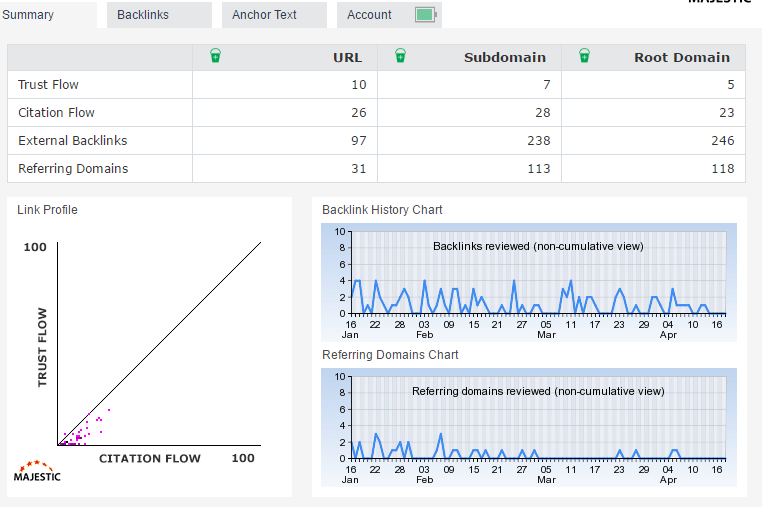
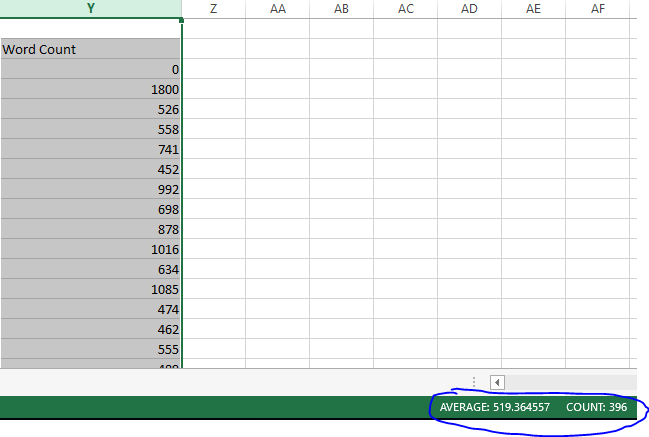
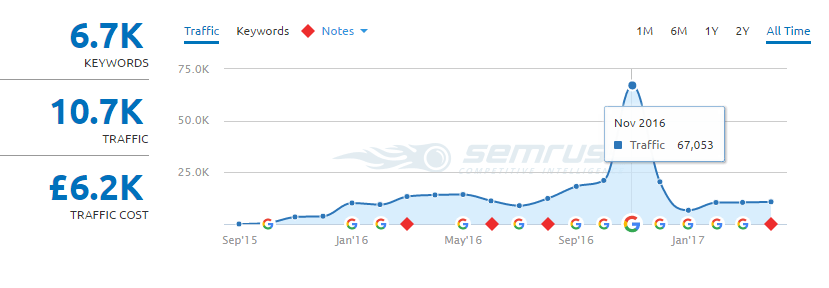
It even managed to rank highly for branded terms:
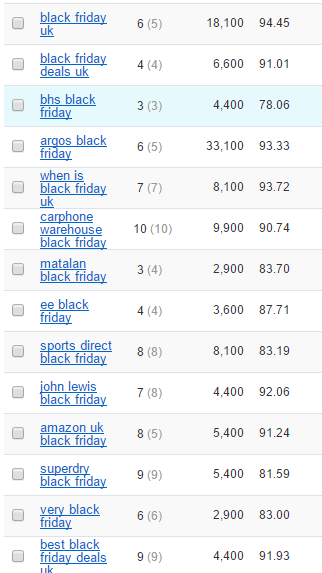
Sitelinks demotion
Once a popular feature in Google webmaster tools, the ‘demote sitelinks’ feature was useful for instances where Google would incorrectly flag certain internal site pages as being worthy of including in the SERPs, to allow webmasters a degree of control over which pages appeared. Ultimately, despite how well engineered Google is, it does sometimes happen that the spiders will crawl a page and assign too high a degree of relative importance to navigation elements, which may not actually be that important.
Recently, an Agency51 client had their cookie policy page showing as a sitelink. This seemed to have occurred due to the cookie notification being in the header, above the fold, and having a link to the cookie policy page-presumably, Googlebot assumed the page to be of high importance because of its position in the homepage’s information hierarchy, even though it is questionable how critical an average user would find such a page to the extent that it should be immediately navigable from the main Google search results.
Similarly, another client of ours has seen seemingly random subcategories popping up in the search results – upon examination it seemed to be the case that Googlebot had gone through to the first primary category and the first primary subcategory, then randomly picked one of the 3rd-tier URLs to display as a sitelink.
Sadly, Google now seem to be so confident in their abilities to determine sitelinks that they have removed the demotion feature in Webmaster Tools – now, the only way to fix errors such as the above in search results is to redesign the site or page in question-something that often isn’t an option for many companies.
Holocaust search results
One of the most unfortunate SERP instances in recent times were the multiple occasions where extreme right-wing, holocaust denial sites were ranking highly on page one for ‘’did the holocaust happen?’’
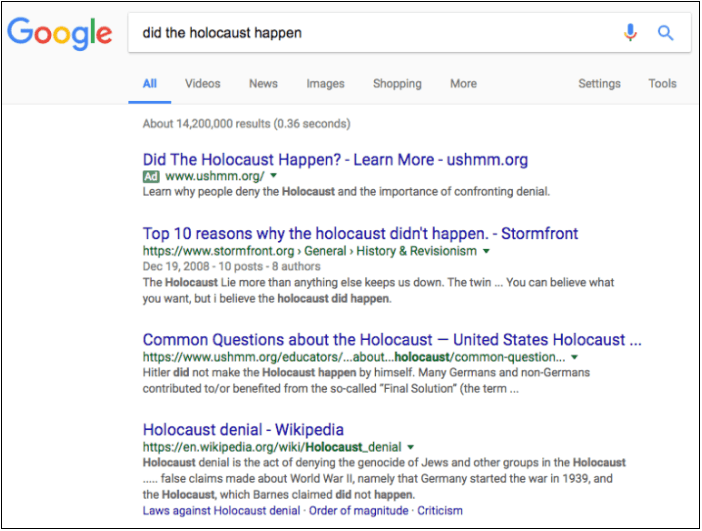
It has been theorised that this problem arose because such websites are likely to have large amounts of content which to Google’s spiders would appear to be ‘authoritative’ on the subject, which combined with the lack of contrasting websites offering specific content aimed at proving the opposite view, led to a substantial information bias, where algorithmically such denial websites were viewed as the highest-authority and most relevant for the searcher’s query. In any case, Google have updated their Search Quality Rater guidelines to address the issue of extreme, hate-fostering websites receiving large amounts of coverage in the search results.
Odd search results for certain queries
In a similar vein to the above (albeit not with an ethical problem) we’ve occasionally seen odd results with information-seeking queries ourselves. Whether this is Rankbrain still not having grown up properly we’re not sure, but it does seem to be the case that it still hasn’t got to grips with certain queries. These are the organic results for the search term
“Why should I set up multi store magento?”
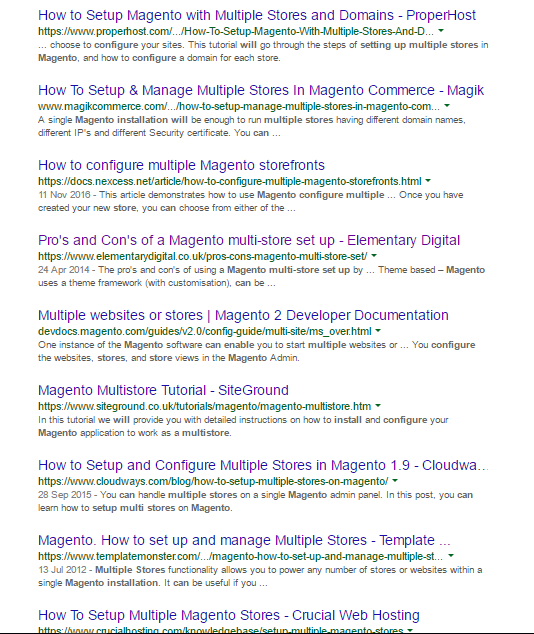
Almost every result addresses “how do I set up multi store magento?” very well, but falls down considerably on the ‘why’ query originally inputted. There is only one result on the first page which one would consider answers the query appropriately, and it’s not even in the top three! This may be due to either an over-weighted bias with most searchers searching for ‘how to’ articles or an oversupply of content for how to type articles, skewing the results for similar but distinctly different searches. The ‘searches similar to’ box would seem to back the former up, as when investigated all of them (even the fairly broad ones) being dominated by how-to and broader queries (as well as some official Magento documentation).
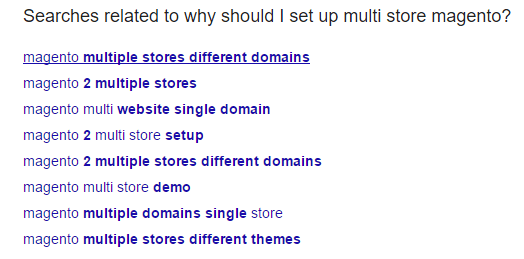
Feeling perplexed by Google’s constant changes? Why not get in touch with a member of the team today and we’ll do our best to help!









































